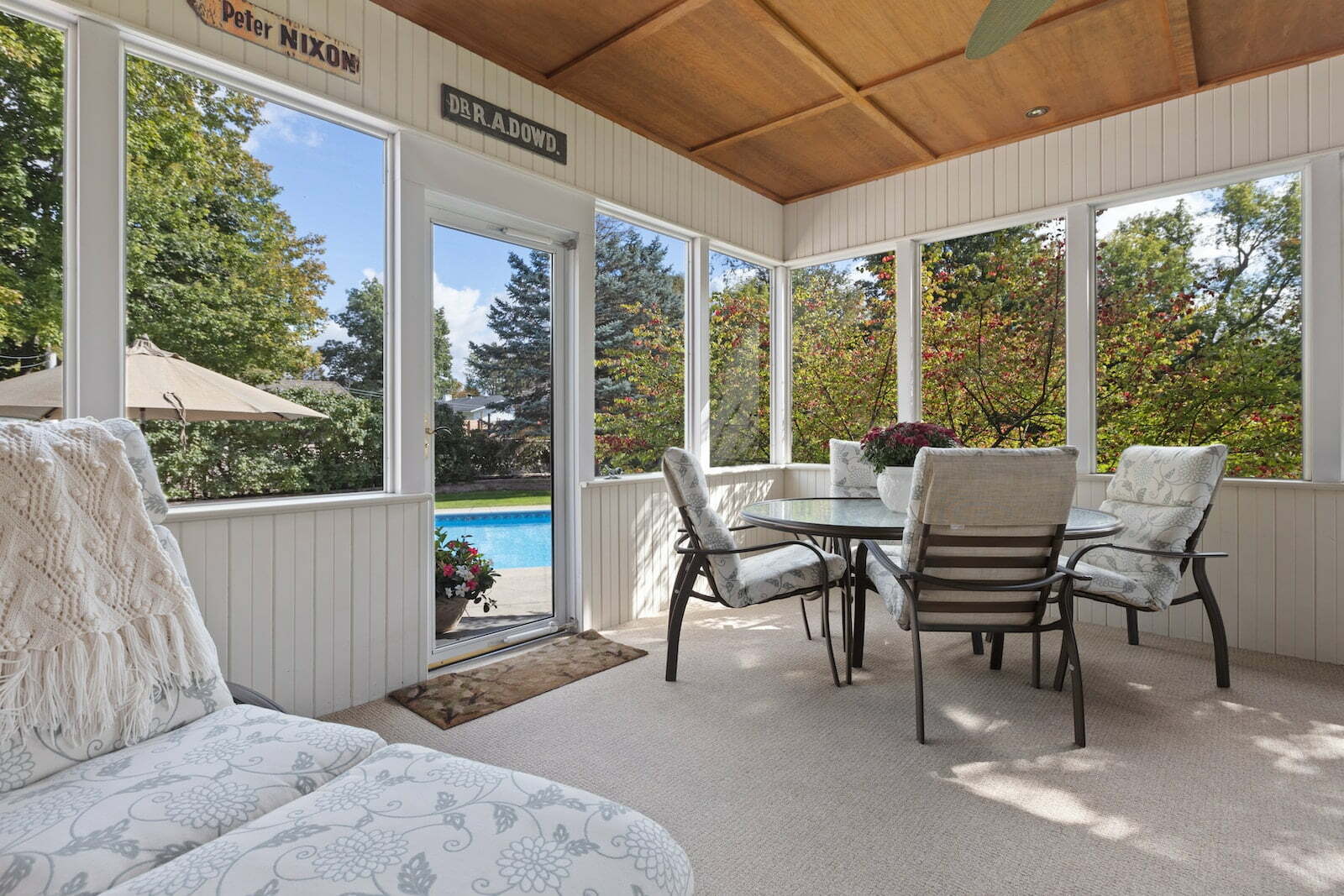So, you’re thinking about adding a deck to your home, huh? Well, before you grab your hammer and start measuring wood, there’s one important question to consider: Do you need a building permit for this project? Adding a deck can be an exciting and practical addition to your home, providing an outdoor space for relaxation and entertainment. However, navigating the world of building permits can be a bit overwhelming. In this article, we’ll explore the ins and outs of building permits for deck additions, so you can confidently embark on your new project without any surprises. Adding a deck to your property can be a great way to enhance your outdoor living space and increase the value of your home. However, before you start planning your dream deck, there are several factors you need to consider. In this article, we will explore the importance of checking local building codes, the circumstances in which you need a building permit, permit exemptions, the process of applying for a permit, and the benefits of hiring professionals. We will also discuss the consequences of not having a permit and offer some final thoughts on ensuring safety and compliance.
Factors to Consider
Location of the Property
The location of your property plays a crucial role in determining whether you need a building permit for your deck. Building codes can vary from one municipality to another, so it is vital to research and understand the specific requirements of your local area. Factors such as zoning regulations, setback requirements, and environmental considerations can all impact the necessity of a permit.
Deck Size and Design
The size and design of your deck are additional factors that may influence the need for a building permit. Generally, larger decks are more likely to require a permit, while smaller ones may be exempt. Additionally, certain design elements, such as multiple levels or intricate features, may trigger the need for a permit. It is essential to consult your local building department to determine the specific regulations governing deck size and design in your area.
Local Building Codes
Local building codes serve as the standard guidelines for construction practices and safety measures. They are designed to ensure structural integrity and protect the well-being of occupants. Familiarize yourself with your area’s building codes to understand the requirements for deck construction. These codes typically cover aspects such as deck height, materials, stairs, railings, and load-bearing capacity. By adhering to these codes, you can ensure that your deck is safe, secure, and compliant with regulations.
When You Need a Building Permit
Deck Height
The height of your deck is a crucial factor in determining whether a building permit is required. Generally, decks that are less than 30 inches above grade may be exempt from permits. However, decks that exceed this height threshold will likely require a permit to ensure proper structural support and safety measures. It is essential to consult your local building department to confirm the specific requirements for deck height in your area.
Deck Construction Material
The type of material used for your deck can also influence the necessity of a building permit. While certain materials may have specific regulations, such as fire-resistant requirements, others may not require a permit at all. For example, if you plan to build a ground-level deck using pressure-treated lumber, you may not need a permit. However, if you choose to use materials like composite decking or metal, which have different load-bearing capacities and installation techniques, a permit may be necessary. Always consult your local building department for guidance on deck construction materials.
Structural Changes
If your deck construction involves making structural changes to your property, such as modifying existing supports or load-bearing walls, a building permit is likely required. Adding or removing structural elements can significantly impact the integrity of your home. Therefore, it is essential to obtain a permit to ensure that these changes are done correctly and in compliance with building codes.
Electrical and Plumbing Work
If your deck plans involve incorporating electrical or plumbing features, it is crucial to get a building permit. These aspects require professional expertise to ensure safety and compliance with local regulations. Whether you plan to install lighting, outlets, or water features on your deck, a permit is necessary to ensure that the electrical and plumbing work is done to code and poses no hazards.
Enclosing the Deck
If you intend to enclose your deck and convert it into a sunroom or a four-season space, a building permit is usually required. Converting a deck into an enclosed area involves additional construction and may impact the structural integrity of your home. By obtaining a permit, you can ensure that the proper measures are taken to guarantee safety, adequate insulation, and compliance with local building codes.

Permit Exemptions
Ground-Level Decks
In many cases, ground-level decks are exempt from the need for a building permit. Ground-level decks are generally built directly on the ground or slightly raised and do not require extensive structural support. However, be sure to check with your local building department to confirm the specific regulations in your area regarding ground-level decks.
Detached Decks
Detached decks, also known as freestanding or island decks, are another category that may be exempt from the need for a building permit. These decks are not connected to the main structure of the house and are self-supporting. Detached decks are usually built away from the house, often in a more secluded part of the yard. While they may not require a permit, it is still advisable to check with your local building department for any specific regulations.
Temporary Decks
Temporary decks, such as those used for events or short-term purposes, are generally exempt from the need for a building permit. These decks are usually not attached to the ground and can be easily assembled and disassembled. However, it is essential to note that the specific requirements for temporary decks can vary based on the duration and purpose of their use. Be sure to confirm with your local building department to determine if you qualify for a permit exemption.
Applying for a Building Permit
Contacting the Local Building Department
Applying for a building permit typically involves contacting your local building department. They are responsible for enforcing the building codes in your area and can provide you with the necessary information and application forms. It is essential to reach out to them early in the planning process to avoid unnecessary delays in your project.
Submission Requirements
When applying for a building permit, you will likely be required to submit specific documents and information. These requirements can vary depending on your location but often include construction plans, a site plan, and details about the proposed materials and methods of construction. Additionally, you may need to provide other supporting documents, such as engineer’s drawings or proof of contractor licensing. Familiarize yourself with the submission requirements from your local building department to ensure a smooth permit application process.
Processing Time and Fees
The processing time for a building permit can vary depending on the complexity of your project and the workload of your local building department. It is advisable to factor in some extra time for the permit approval process when planning your deck construction. Additionally, building permits usually involve fees, which vary depending on your location and the scope of your project. Be sure to budget for these fees and inquire about the accepted methods of payment.
Hiring a Professional
Architects and Designers
If you are not confident in your design skills or if you have complex requirements for your deck, hiring an architect or designer can be beneficial. These professionals have the expertise to create a deck design that meets your aesthetic preferences and functional needs while taking into account local building codes. They can also assist in preparing the necessary construction plans and documents for the building permit application.
Contractors and Builders
Engaging a contractor or builder can ensure that your deck construction is done properly and in compliance with building codes. These professionals have the experience and knowledge to execute your deck plans efficiently and safely. They are familiar with local building regulations, ensuring that your deck meets all necessary requirements. Hiring a professional can help streamline the permit application process and ensure that your deck is built to the highest standards.
Consequences of Not Having a Permit
Legal Penalties
Constructing a deck without the required building permit can have legal repercussions. If your local building department discovers that your deck was built without a permit, they may issue a stop-work order or impose fines. In some cases, you may be required to dismantle the deck entirely and start from scratch. It is essential to comply with the local regulations and secure the necessary permits to avoid these potentially costly consequences.
Insurance Issues
Not having a building permit for your deck can also lead to insurance problems. If an incident or accident occurs on your deck, your insurance company may deny your claim if it is determined that the deck was not built to code or without the necessary permits. Having a properly permitted and inspected deck ensures that you are covered in case of any unfortunate incidents.
Resale and Home Appraisal Concerns
When it comes time to sell your home, having an unpermitted deck can complicate the transaction. Prospective buyers may be hesitant to purchase a property with unpermitted structures, as it raises concerns about compliance with building codes and potential future issues. Additionally, unpermitted decks may not be factored into the property’s appraisal value, potentially affecting the overall market value of your home. It is crucial to obtain the necessary permits to ensure a smooth home sale process and maximize your property’s value.
Final Thoughts
Ensuring the safety and compliance of your deck should be a top priority when embarking on a construction project. By understanding the factors to consider, determining when a building permit is necessary, learning about permit exemptions, and following the correct application process, you can ensure that your deck is built to code and meets all the required standards. Hiring professionals, such as architects, designers, contractors, and builders, can provide invaluable expertise and peace of mind throughout the construction process. Remember, neglecting to obtain a building permit can result in legal, insurance, and resale complications. Taking the necessary steps to ensure a properly permitted and constructed deck will not only enhance your outdoor living space but also provide you with peace of mind for years to come.



